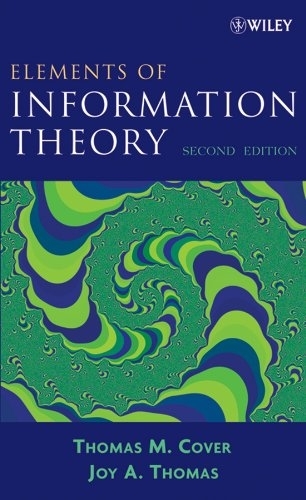
Nassim Taleb Book List: 35 Must-reads
0
likes
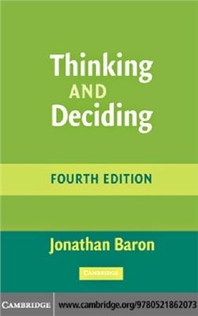
Thinking and Deciding
I am buying another copy of this book as mine was lost or misplaced. That should speak volumes.
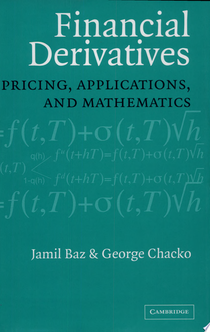
Financial Derivatives
Other quant books do not have such notions as “pricing kernel” and economic theoretical matters. I would recommend it as a necessary piece of the “quant” toolkit. Every quant should have it as a background tool as the usual quant literature is standalone and devoid of these concepts.
See all

Happy Accidents
We urgently need to rewrite the history of medicine without the ex post explanations. Meyers started the process: he provides data for modern medicine since, say, Pasteur. I am more interested in the genesis of the field before the Galenic nerdification.

Statistical Models
This is the first statistics book I’ve seen that cares about presenting statistics as a tool to GET TO THE TRUTH.Please buy it.
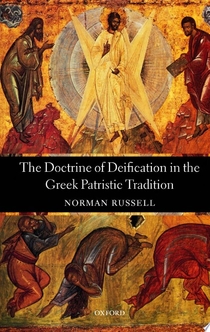
The Doctrine of Deification in the Greek Patristic Tradition
I initially bought this book as I was curious about the differences between Eastern & Western traditions, particularly with the notion of theosis –the deification of man. This book goes far deeper, and covers pre-Christian practices (like Stoic thoughts, the deifications of Kings, Roman Emperors, that of private citizens who committed symbolic acts –such as Antinous, Hadrian’s obsession, who drowned to “save” mankind and other sotirologies).
See all
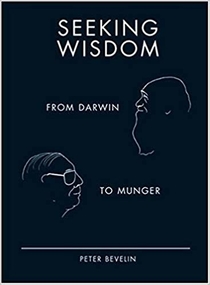
Seeking Wisdom
A wonderful book on wisdom and decision-making written by a wise decision-maker. This is the kind of book you read first, then leave by your bedside and re-read a bit every day, so you can slowly soak up the wisdom. It is sort of Montaigne but applied to business, with a great investigation of the psychological dimension of decision-making.
See all

Plato and a Platypus Walk Into a Bar
I read Plato and the Platypus by Umberto Eco, which I found brilliant and was sucked into buying this book thinking it was about the same problem of categories. But Philosophy this is not, or if it is, it is not deep enough to give satisfaction.

Good Calories, Bad Calories
Gary Taubes is a true empiricist. I can’t believe people hold on to the Platonicity of the thermodynamic theory of diet (calorie in = calorie out).Read it twice, once for the diet, once a a rich document in the history of science.
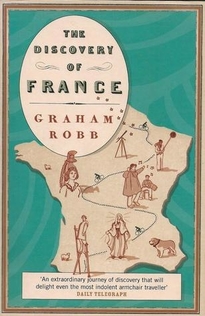
The Discovery of France: A Historical Geography from the Revolution to the First World War
This book has wonderful qualities that I am certain will be picked up by other reviewers. But I would like to add the following. This is the most profound examination of how nationality is enforced on a group of people, with the internal colonization process and the stamping out of idiosyncratic traits.
See all

Explaining Social Behavior
I read this book twice. The first time, I thought that it was excellent, the best compendium of ideas of social science by arguably the best thinker in the field. I took copious notes, etc. I agreed with its patchwork-style approach to rational decision making. I knew that it had huge insights applicable to my refusal of general theories [they don’t work], rather limit ourselves to nuts and bolts [they work].
See all
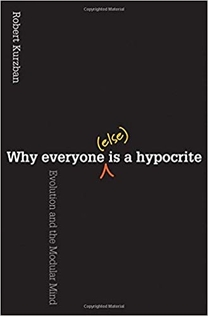
Why Everyone (Else) Is a Hypocrite
This is a great synthesis of the modularity approach to cognitive science. It covers the entire field and has the right footnotes for the patches.

Free The Animal: Lose Weight & Fat With The Paleo Diet
A charming primer on the paleo idea, with an illustration through the authors own life. I read it in one sitting.

Information
If you want an introduction to information theory, and, in a way, probability theory from the real front door, this is it. A clearly written book, very intuitive, explains things, such as the Monty Hall problem in a few lines. I will make it a prerequisite before more technical great books, such as Cover and Thompson.
See all

Bull by the Horns
I don’t have time for a full review for now; all I have to say is that we have the account of a person who says it the way it was, revealing the types of truths that don’t fit the New York Times and others pawns. When history is written, this will be used, not the spin by the bankers’ slaves and soldiers (Geithner, Rubin et al.) Bravo Sheila!
See all

The Opposing Shore
Until I read this book, Buzzati’s “Il deserto dei tartari” was my favorite novel, perhaps my only novel, the only one I cared to keep re-reading through life. This is, remarkably a very similar story about the antichamber of anticipation (rather than “the antichamber of hope” as I called Buzzati’s book), but written in a much finer language, by a real writer (Buzzati was a journalist, which made his prose more functional) ; the style is lapidary with remarkable precision; it has texture, wealth of details, and creates a mesmerizing athmosphere. Once you enter it, you are stuck there. I kept telling myself while reading it: “this is the book”. It suddenly replaced the “deserto”.
See all

The Hour Between Dog and Wolf
I read this book after completing my exposition of overcompensation, how a stressor or a random event causes an increase in strength, in excess of what is needed, like a redundancy.

Body by Science
I feel guilty for not having posted a review earlier: I owe a lot to this book. I figured out the value of intensity training and maximizing recovery.

Models.Behaving.Badly.
Here is what I wrote in my endorsement: Emanuel Derman has written my kind of a book, an elegant combination of memoir, confession, and essay on ethics, philosophy of science and professional practice. He convincingly establishes the difference between model and theory and shows why attempts to model financial markets can never be genuinely scientific. It vindicates those of us who hold that financial modeling is neither practical nor scientific. Exceedingly readable.
See all

Probability Theory
I know which books I value when I end up buying a second copy after losing the first one. This book gives a complete overview of the basis of probability theory with some grounding in measure theory, and presents the main proofs.

Mathematics
There is something admirable about the school of the Russians: they are thinkers doing math, with remarkable clarity, minimal formalism, and total absence of unnecessary pedantry one finds in more modern texts (in the post Bourbaki era). This is of course surprising as one would have expected the exact opposite from the products of the communist era.
See all

Probability, Random Variables, and Stochastic Processes
When readers and students ask to me for a useable book for nonmathematicians to get into probability (or a probabilistic approach to statistics), before embarking into deeper problems, I suggest this book by the Late A. Papoulis. I even recommend it to mathematicians as their training often tends to make them spend too much time on limit theorems and very little on the actual “plumbing”.
See all

The Science of Conjecture
Indispensable. As a practitioner of probability, I’ve read many book on the subject. More are linear combinations of other books and ideas rehashed without real understanding that the idea of probability harks back the Greek pisteuo (credibility) and pervaded classical thought.
See all

A Few Lessons from Sherlock Holmes
We Sherlock Holmes fans, readers, and secret imitators need a map. Here it is. Peter Bevelin is one of the wisest people on the planet. He went through the books and pulled out sections from Conan Doyle’s stories that are relevant to us moderns, a guide to both wisdom and Sherlock Holmes. It makes you both wiser and eager to reread Sherlock Holmes.
See all

The Kelly Capital Growth Investment Criterion
Kelly’s method (or, rather, Kelly-Thorpe), developed around the same period, which requires no joint distribution or utility function. It is very robust.






